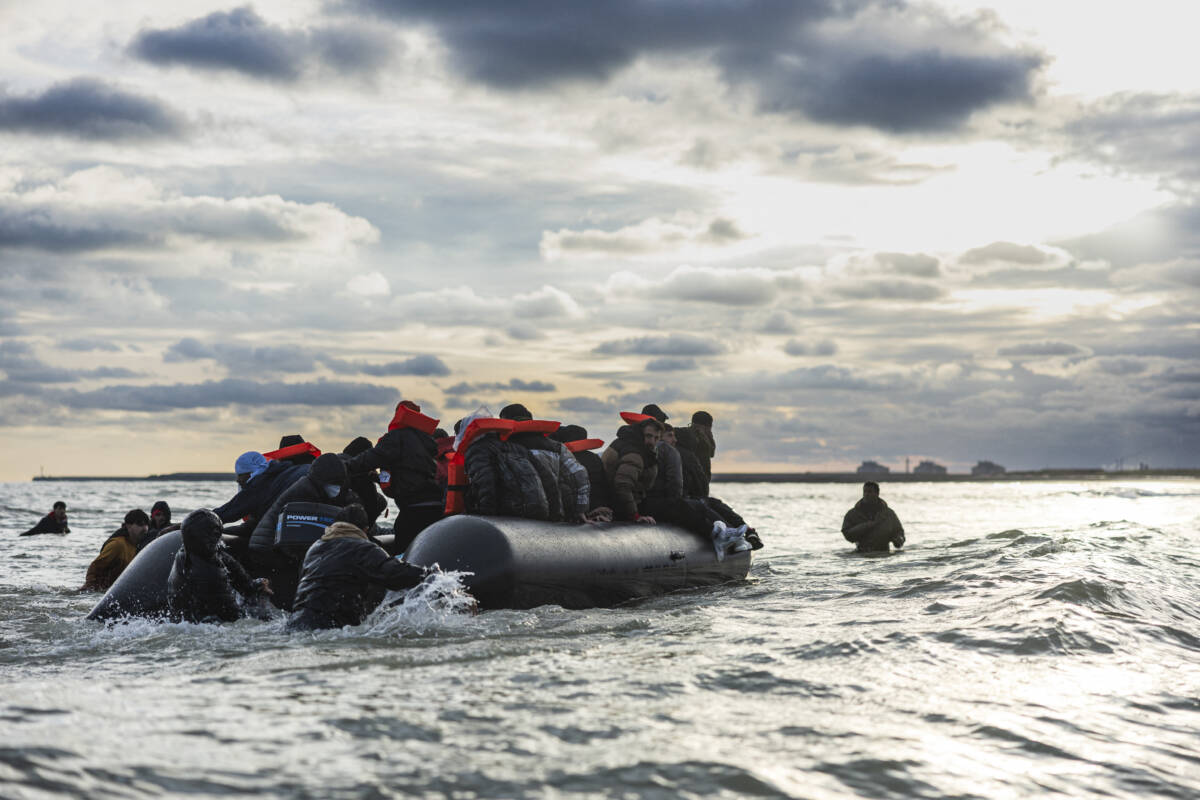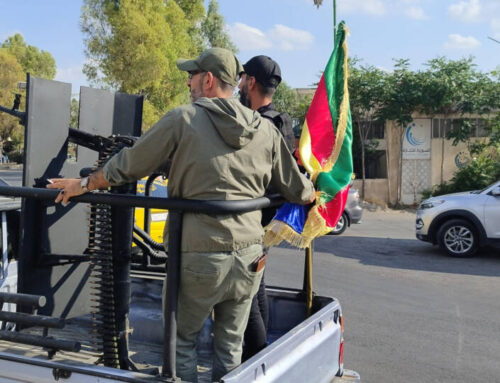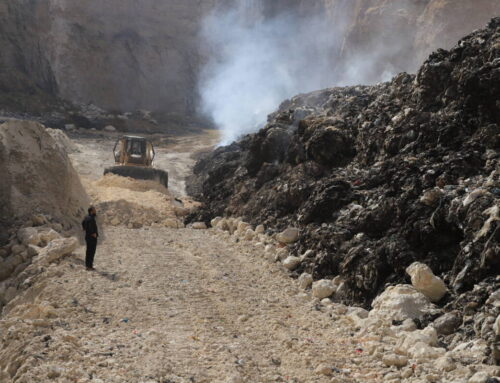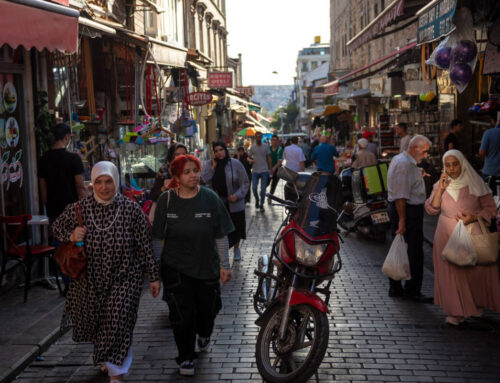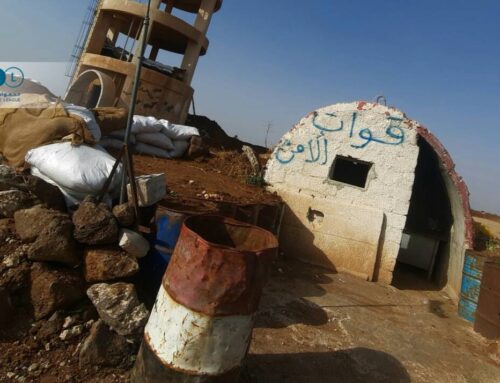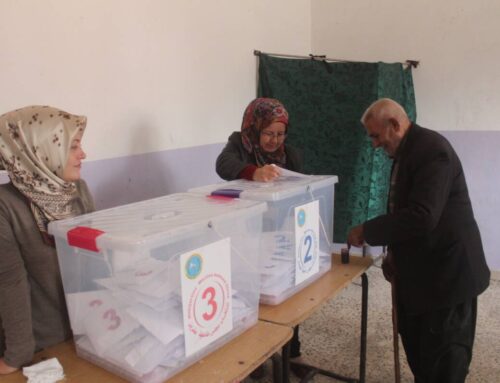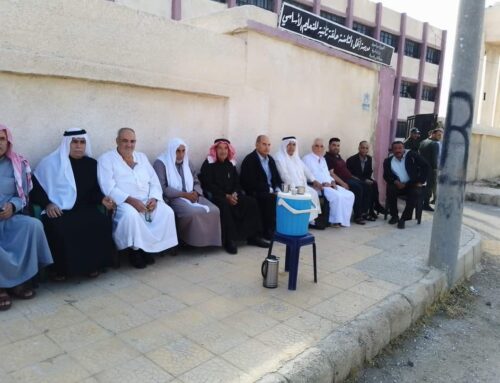Syrian asylum seekers undeterred by Rwanda plan ahead of UK elections
The fates of thousands of asylum seekers, including Syrians, hang in the balance in the UK's July elections. The vote will decide the future of the government's Rwanda deportation plan—touted as an “indispensable deterrent” even as boats continue to arrive.
19 June 2024
BRISTOL — Abdulrahman was just 15 when he left his hometown, the northern Syrian city of Raqqa, to follow his older brother to the United Kingdom in 2018. After spending four years in Turkey and traversing Europe, he finally crossed the English Channel just over a month ago. Now 21, he hopes his journey is over. But that depends—in part—on the outcome of the UK’s upcoming general elections.
The July 4 vote will likely decide the fate of the UK government’s controversial plan to deport asylum seekers entering the country “illegally” after January 2022 to Rwanda, to have their cases considered there. That would potentially include both Abdulrahman and his brother, who reached the UK in late 2022.
Abdulrahman, who asked to be identified only by his first name due to fears that speaking to the media could affect his asylum claim, knew about the Rwanda plan before he boarded a boat in Calais, France to cross the English Channel on May 18. But he was not deterred.
“It affected my plans a bit, but in the end, I didn’t feel I had another option,” he told Syria Direct from his asylum accommodation, a hotel on the outskirts of the central English city of Derby. “My brother is here, and I can’t go back to Syria.”
“I don’t imagine they will send us [to Rwanda] though,” Abdulrahman said. “We’re applying for asylum, we’re requesting protection. I don’t think they’ll send us if we don’t have any issues.”
Abdulrahman hopes he will be protected from deportation. But more than 50,000 asylum seekers like him currently face the threat of removal to the East African country. One in five of those at risk are Syrians.
They will be in limbo until at least July, as current Prime Minister Rishi Sunak told a High Court judge last month that no deportation flights would take off to Rwanda before snap elections he called for July 4.
Whether they have a valid asylum claim or not, the brothers could be deported if the plan remains in place. And while Syrian asylum seekers had a 98 percent success rate for their claims in the UK from 2020 to 2022, they had a 0 percent success rate in Rwanda for the same period.
‘No evidence’ migrants are being deterred
First introduced in April 2022, the Rwanda plan has faced legal challenges from the start. In November 2023, the UK’s Supreme Court ruled it unlawful on the grounds that Rwanda is not a safe third country.
The government subsequently passed the Safety of Rwanda Act in April, allowing it to disregard the court ruling and treat Rwanda as a safe country for asylum seekers. Human rights groups, including Amnesty International UK, branded the UK parliament “a crime scene” after the legislation passed.
Sunak describes the plan as an “indispensable deterrent” to asylum seekers wishing to reach the UK, while human rights groups say there is “no evidence” the plan will work as a deterrent. They hold that the government should focus on introducing safe routes to asylum instead.
While new arrivals in the UK dropped last year, the number of asylum seekers crossing the Channel in small boats has steadily risen in 2024, with more than 10,000 making the journey so far. Multiple factors, including warmer weather, ongoing conflicts and police violence against migrants in northern France and Belgium influence people’s decisions to cross.
The increase in crossings also suggests that asylum seekers are not being deterred by the UK’s promise to deport them once they arrive on British shores. As in Abdulrahman’s case, there are simply too many reasons to continue their journeys, and not enough alternative options.
Very few safe and legal routes currently exist for asylum seekers wishing to travel to the UK, which shut down a key resettlement scheme for Syrian refugees in 2021.
“The next government must introduce a refugee protection system that respects the fundamental right of people to seek safety,” Mohamed Omar, Head of Experts by Experience and Partnerships at UK charity Refugee Action, told Syria Direct.
“New pathways” should be created so that refugees can reach the UK “without having to take perilous journeys across the Channel,” Omar added.
At least 14 people have died so far this year, including Syrians, while attempting the crossing.
‘Treated like a criminal’
Eyad (a pseudonym) arrived in the UK in July 2022—six months too late to be safe from a removal notice. He was one of more than 100 asylum seekers detained in a set of “mass arrests” at the end of April, after the Safety of Rwanda Act passed.
In the series of arrests, some documented in a “celebratory” Home Office video, Eyad and dozens of other asylum seekers were pulled from their beds and removed from their accommodation in handcuffs in the early hours of the morning.
Eyad—who asked to be identified by a pseudonym because his family does not know he was detained—spent one month detained in the Colnbrook Immigration Removal Center, near London’s Heathrow Airport.
While there, the young Syrian was locked in his cell for 12 hours a day, and struggled to eat and drink due to psychological distress, according to volunteers who know him from North Derbyshire Refugee Support Group. Eyad agreed to share his story with Syria Direct through volunteers, but declined to be interviewed directly.
James Eaden, a volunteer with the group and head of the Chesterfield and District Trades Union Council, said volunteers who visited Eyad in detention were shocked by his deterioration.
“He wasn’t eating, he wasn’t going out of his cell,” Eaden said. “The volunteers knew him as a very bright, bubbly and engaging person. They said the contrast was very stark.”
Eyad was released on bail on May 31, but is still subject to a deportation order and required to report to an immigration centre every week. Asylum seekers are usually required to report every two weeks or every month.
“Effectively, Eyad and others are being used as election fodder,” Eaden said.
The extra reporting conditions are adding to Eyad’s stress, Barbara Sansome, a volunteer for North Derbyshire Refugee Support Group, said. “Every time he goes to report, he’s worried he might get detained [again],” she explained.
Eyad has been left destitute following his release. “He’s staying with friends and family, because he lost his housing,” Sansome added. “He’s got to reapply for support, but we don’t know how long the decision will take.”
“It’s totally unjustified,” she said. “They’re not having to prove their asylum case with Rwanda. They’re not even being given the chance.”
Eyad has been treated like a criminal, but “hasn’t done anything wrong,” Sansome added.
Where do UK parties stand?
The £500 million Rwanda plan is a dividing line between the UK’s Labour and Conservatives, with the Labour Party promising to “cancel the [Rwanda] scheme straight away” if it comes to power in the elections—something polls suggest could happen.
Sunak has doubled down on his government’s Rwanda plan, suggesting in a televised debate on June 4, that he would be willing to take the UK out of the European Convention of Human Rights if it stood in the way.
Opposition parties on the left, including Labour, the Green Party, Liberal Democrats and Scottish National Party all oppose the plan. The far-right opposition party Reform UK has also previously opposed the plan, but promises other offshoring plans in its immigration policy.
Migration experts say the broadcasted detentions are far more about “good campaigning material” for the ruling Conservatives than they are about actual deportations. But polls suggest these efforts could be fruitless. UK voters are reportedly much more concerned about the country’s cost of living crisis and National Health Service than they are about immigration.
While Labour says it opposes the Rwanda plan, migration experts and practitioners say the party has not answered calls for safe routes to asylum, and is following similar ‘deterrent’ tactics to those under the Conservatives—tactics that experts say are not working, and are putting people’s lives at risk.
Keir Starmer, the leader of the Labour Party, suggested in the June 4 debate that he would be open to sending asylum seekers to other third countries in order to reduce immigration.
At the moment, Abdulrahman, Eyad and other asylum seekers—including survivors of torture—can do little but wait.
For Abdulrahman, being displaced again is unimaginable. The relief of reuniting with his brother in the UK last month after six years apart was a “feeling I don’t have the words for,” he said. His brother, who is also waiting for his asylum claim to be processed, is in Liverpool, around two hours away. They see each other when they can.
If given the chance, Abdulrahman is eager to begin rebuilding a life in the country he risked his life to reach. “Everything is fine here,” he said. “I want to stay and start work as soon as I can. I don’t mind what work I do.”

